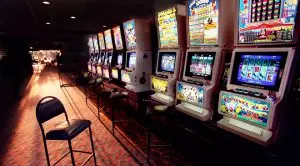 A sinking lid policy on pokie machines could be adopted in New Zealand’s Tasman District as gambling-related harm is believed to be affecting hundreds of individuals within the district. The restriction is part of the District Council’s draft Gambling Venues Policy, which is scheduled to go for public consultation next week.
A sinking lid policy on pokie machines could be adopted in New Zealand’s Tasman District as gambling-related harm is believed to be affecting hundreds of individuals within the district. The restriction is part of the District Council’s draft Gambling Venues Policy, which is scheduled to go for public consultation next week.
The proposal was made in October 2018 by a committee, which told council members to introduce a sinking lid policy instead of a cap on the number of electronic gaming machines. This approach, although supported by local authorities across the country, is seen by some as unnecessarily restrictive. It applies to both pokies and venues, which host such gaming machines.
If adopted, this policy would put a cap on the number of machines in the Tasman District and would prohibit venues from relocating. This means that when an existing Class IV venue relocates or closes, its license would be effectively revoked. The pokie machines cannot be transferred to another pub or sold to another venue under such rules.
Currently, there is a cap of 220 gaming machines in the district, which was introduced in 2010. Back then, the Council reviewed both options and refused to enforce the sinking lid approach. Now, the draft policy will be opened for public consultation on August 9. Last week, it received approval from the Environment and Planning Committee at the Tasman District Council. New submissions can be filed until September 13.
Proposal Met with Mixed Reaction
 A recent report to the Tasman District Council claimed that problem gambling was a serious issue in the district, affecting several hundred people. And while the proposed sinking lid policy might ultimately reduce the number of gaming machines, it would not prevent people from gambling. Moreover, pokie venues provide funding for multiple voluntary organizations and community projects, according to Motueka Community Board member and former councillor Barry Dowler.
A recent report to the Tasman District Council claimed that problem gambling was a serious issue in the district, affecting several hundred people. And while the proposed sinking lid policy might ultimately reduce the number of gaming machines, it would not prevent people from gambling. Moreover, pokie venues provide funding for multiple voluntary organizations and community projects, according to Motueka Community Board member and former councillor Barry Dowler.
Dowler says that the proposed sinking lid policy would have a negative impact on a wide variety of projects and social programs that relied on funding grants by pokie pubs. He agrees with the cap on the number of gaming machines, which currently applies, but he believes that restricting businesses from relocating would only do more damage. The loss of charity grants from pokie venues would only put “unnecessary pressure”, he adds. Furthermore, if people have no access to electronic gaming machines, they would simply go online and continue gambling, Dowler says.
Meanwhile, the government announced last month it was planning various problem gambling programs, which would be funded with $60 million over three years. According to Associate Minister of Health Jenny Salesa, 1 in 5 people in New Zealand would be affected by gambling in their lifetime. But there is a far more alarming trend and this is the inequity among vulnerable communities – the Māori, Pacific and Asian communities, she says, are particularly vulnerable so the pilot programs should be targeting them.
- Author


